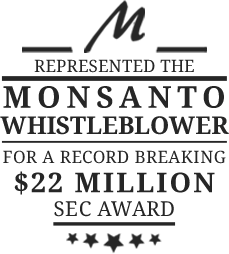








Can Insider Trading Fraud Happen at a Distance?
We’re currently following a case that raises several issues about the definition of insider trading violations. If a person passes information to another person who then also passes it along, but neither use it directly for personal gain, can the first tipster be held accountable when the person at the end of the chain uses that information to profit from the market? Does that still constitute a fraud conspiracy, even though some of those involved never met and did not directly profit from the scheme?
This case might answer those questions, and it’s also a good example of how a potential whistleblower can act from within any of a number of different entities associated with a fraud charge.
Medicare Reimbursements at the Center
The case focuses on the alleged actions of a political intelligence consultant whose role was to help his client, a hedge fund, make better decisions about healthcare investments.
That consultant previously worked for the Centers for Medicare and Medicaid Services (CMS) and still had contacts there, specifically a senior staffer with detailed inside knowledge about potential and planned changes to Medicare reimbursements. Those reimbursement changes, if known in advance, could allow traders to cash in on expected increases or decreases in the stock price of affected companies.
And that’s just what is alleged to have happened. A CMS staffer passed information to the consultant, who shared it with traders at the hedge fund, who in at least two instances in 2012 and 2013 made trades that quickly netted more than $3.5 million for the fund.
Did They Do It for Gain?
If there will be difficulty in proving insider trading, it will be because neither the CMS staffer nor the consultant made any trades based on the information. The CMS employee received no gain from sharing the information, outside of discussions about a potentially lucrative new job in the future. The consultant also saw no immediate benefit but ultimately received more than $250,000 in consulting fees for his services.
The case law isn’t definitive but suggests that, as long as the initial disclosure was improper and given for benefit, or that a secondhand user of the information knew or suspected that the information passed to him resulted from a beneficial relationship, then an insider trading charge would be appropriate.
Where’s the Whistleblower?
It’s not known if there was a whistleblower in this case, but, based on our experience, we suspect there was. If you take the time to read the full indictment, it’s easy to believe that a whistleblower could have helped break this case. One defendant seems to have been especially sloppy with the inside information he received, in some cases sharing it both with other defendants and with multiple clients, as well as boasting of his access to otherwise secret information.
Within a few weeks of one of the suspected trades, a document written by that defendant had reached CMS staffers, who discussed the potential criminal acts that could have been involved in getting and using the information in it. They also recognized that the info came from within their agency.
Any one of many people involved—at the hedge fund, at another client, or at CMS—could have put some pieces together and called the Securities and Exchange Commission (SEC) to report the suspected fraud.
The SEC Will Pay for Your Help
Since the passage of the Dodd-Frank Wall Street Reform and Consumer Protection Act in 2010, more attention has been paid to enforcing the regulations governing the United States’ financial system and in going after violators. A key approach has been expanding the role of whistleblowers—those who report fraudulent activity to regulators.
Not only are many more people eligible to act as whistleblowers, but whistleblower protections and the rewards for information leading to a successful prosecution have increased. Since 2011, more than $154 million has been awarded to whistleblowers on nearly $1 billion in fines and other penalties.
Insider Trading Whistleblower Lawyer
If you’ve come across information that reveals insider trading, you may be eligible for a sizeable award if the information you provide leads to a successful SEC prosecution. But it’s important to follow the correct procedures, or you risk losing the ability to collect anything at all.
Meissner & Associates has been specializing in SEC whistleblower cases since 2001, and we are available to confidentially evaluate your information. For more information, give us a call today at 1-866-764-3100 or fill out the online contact form at the bottom of this page.
